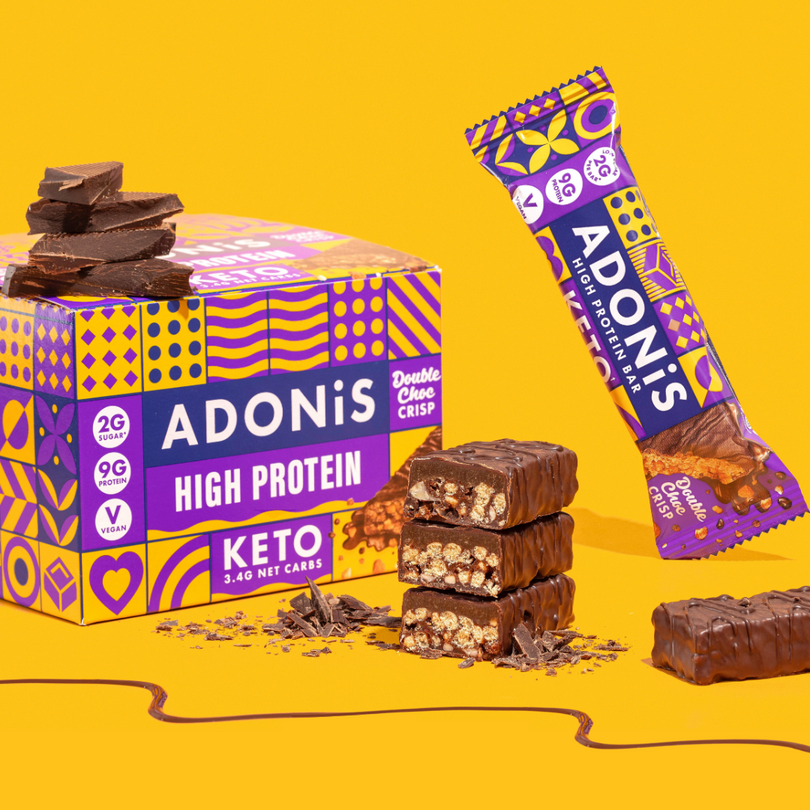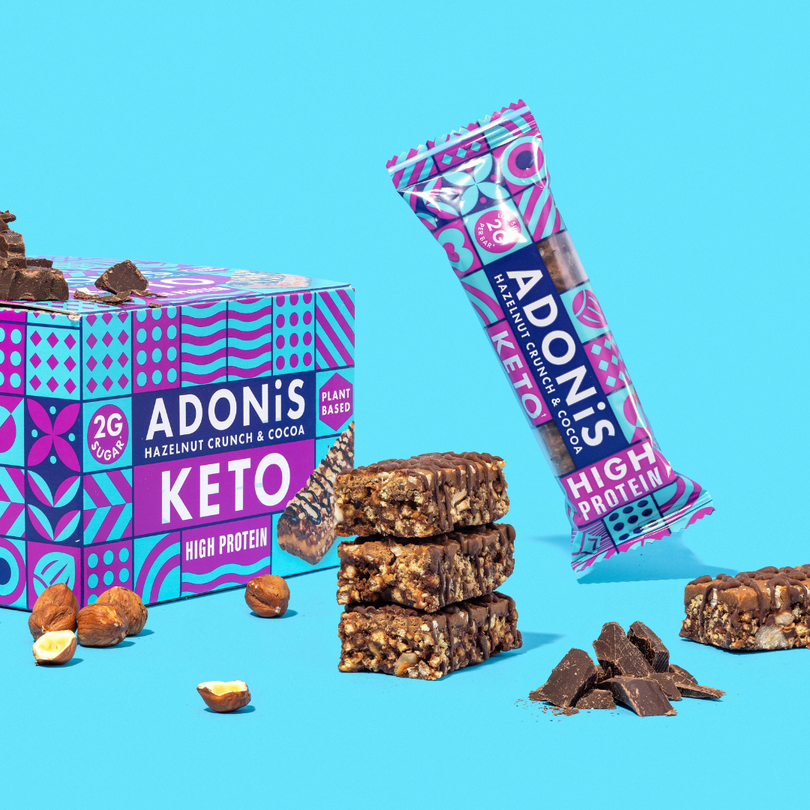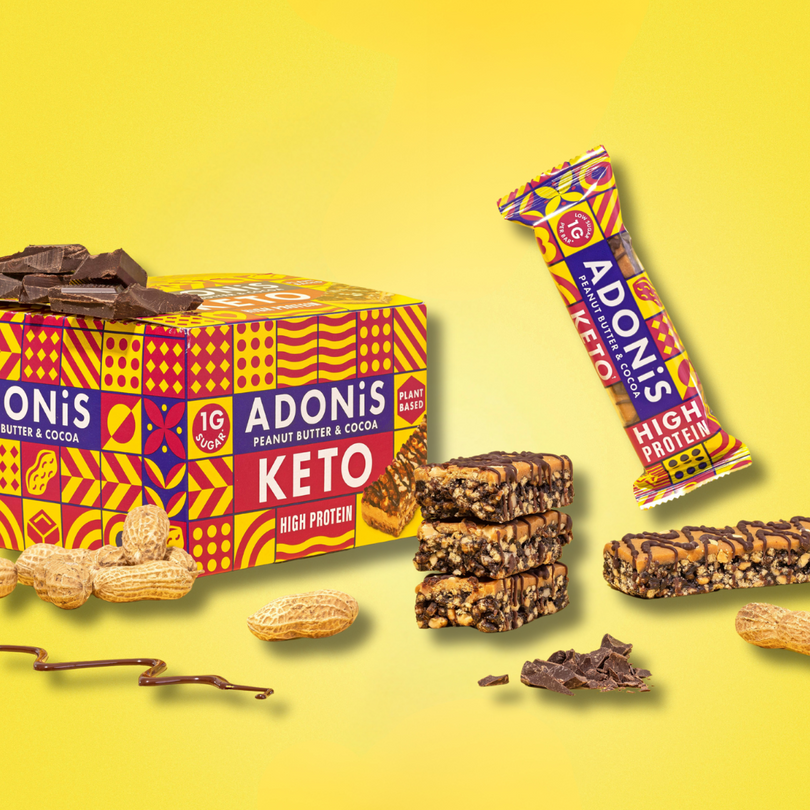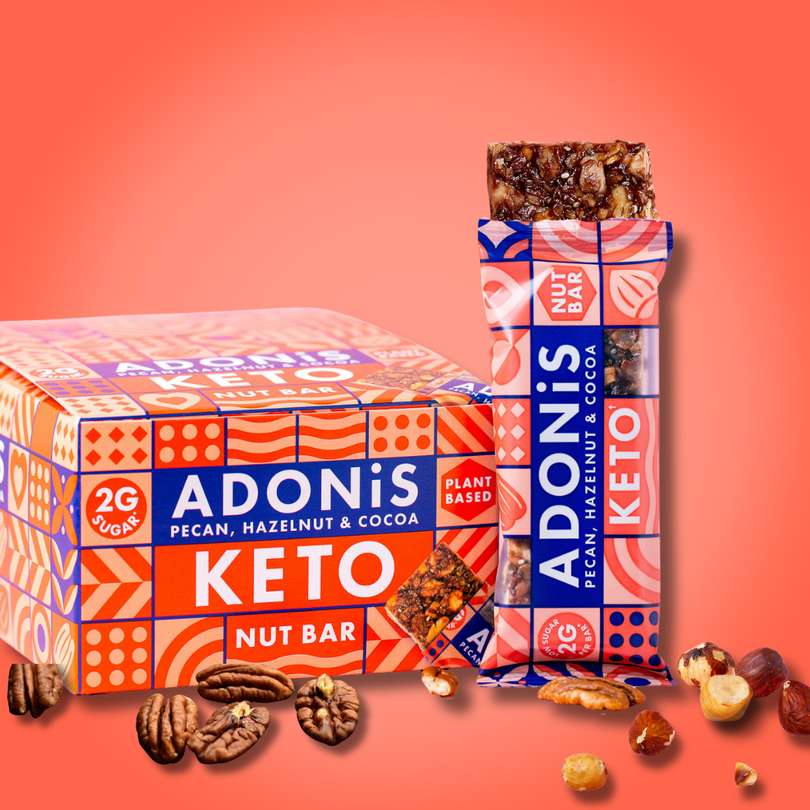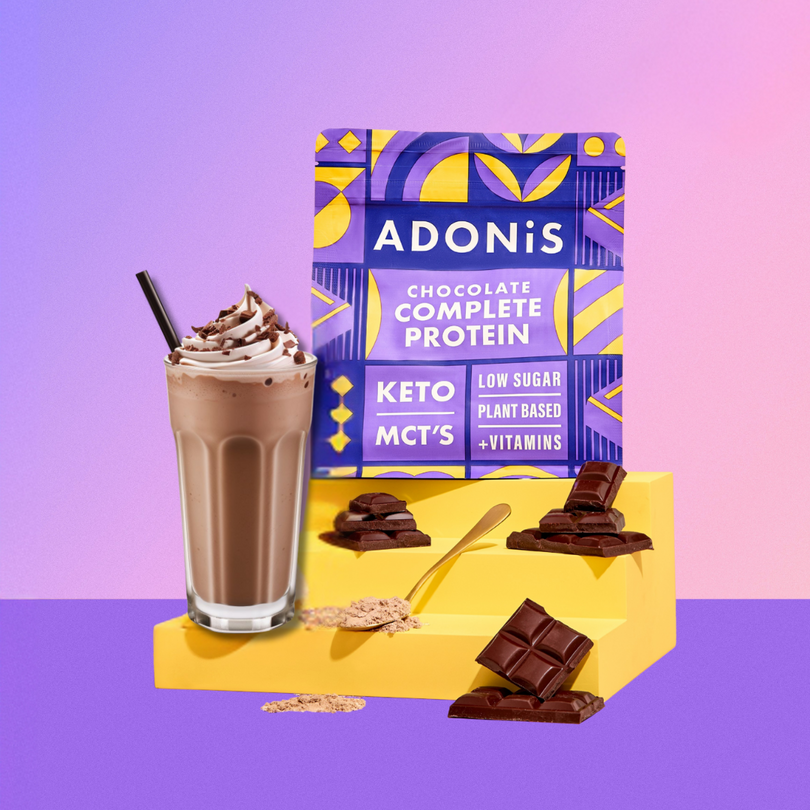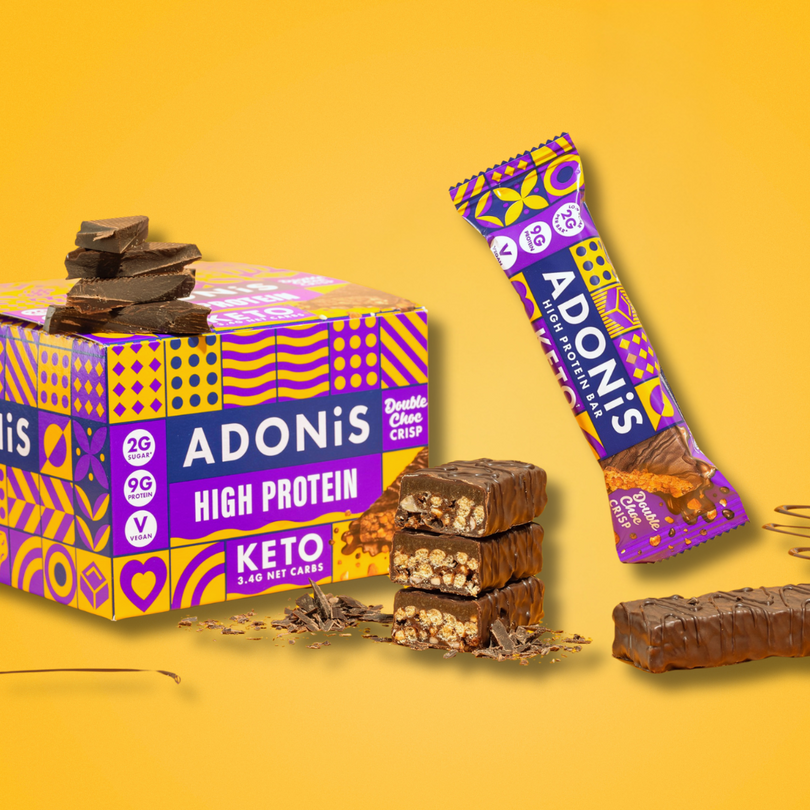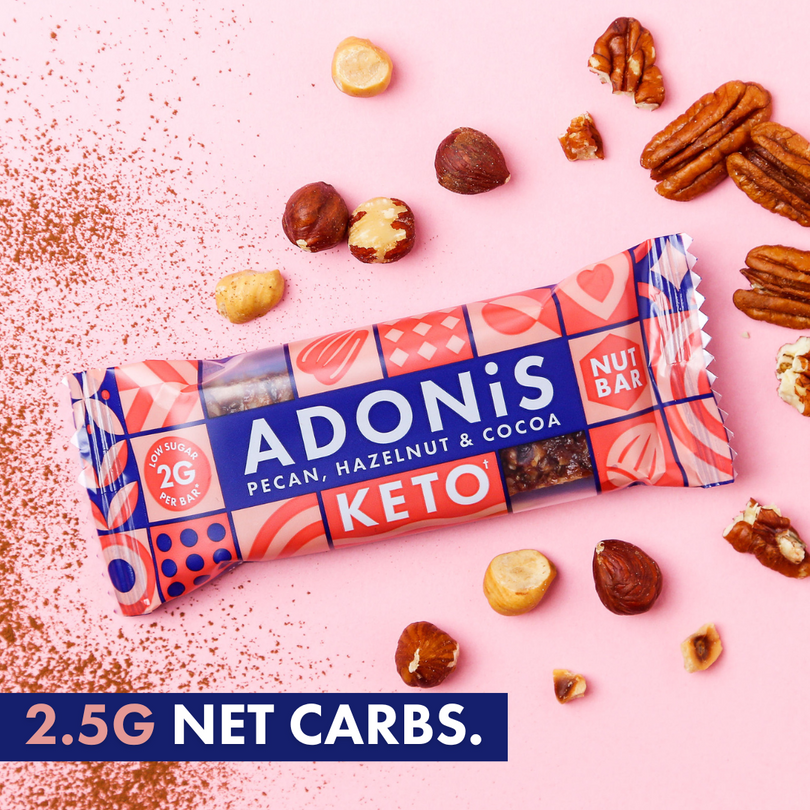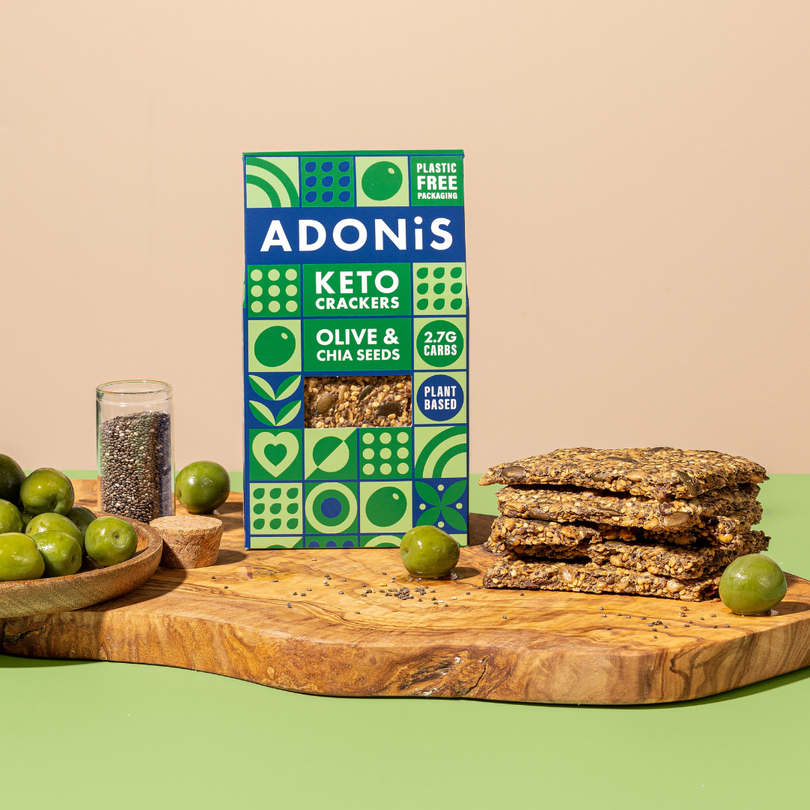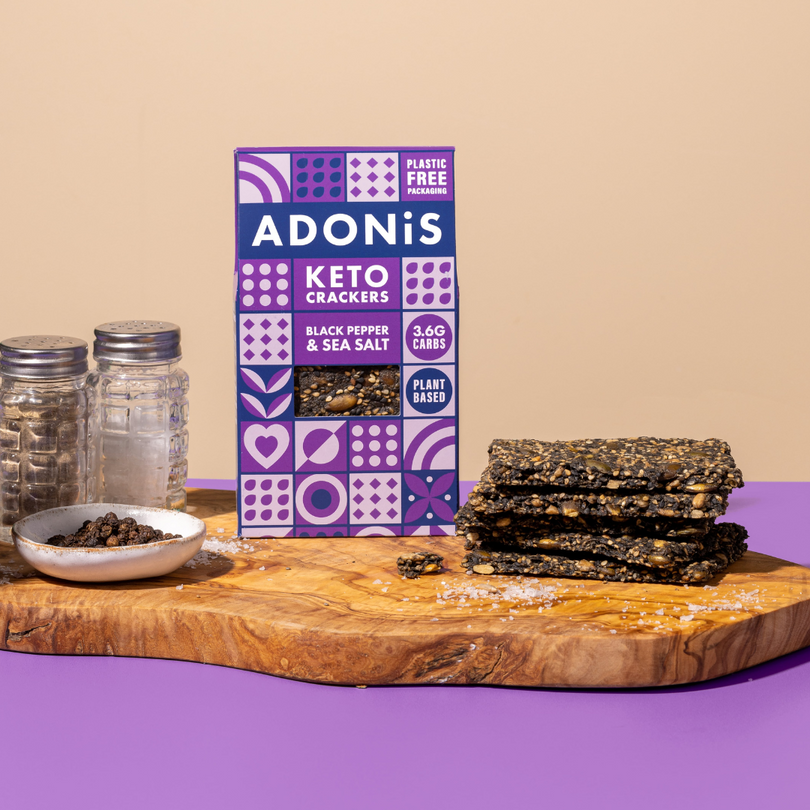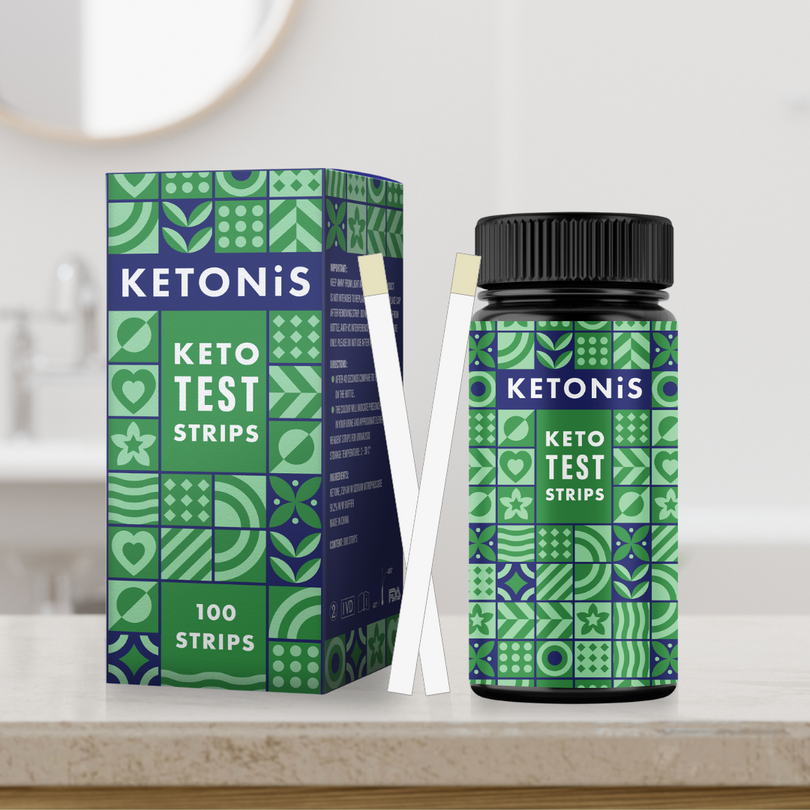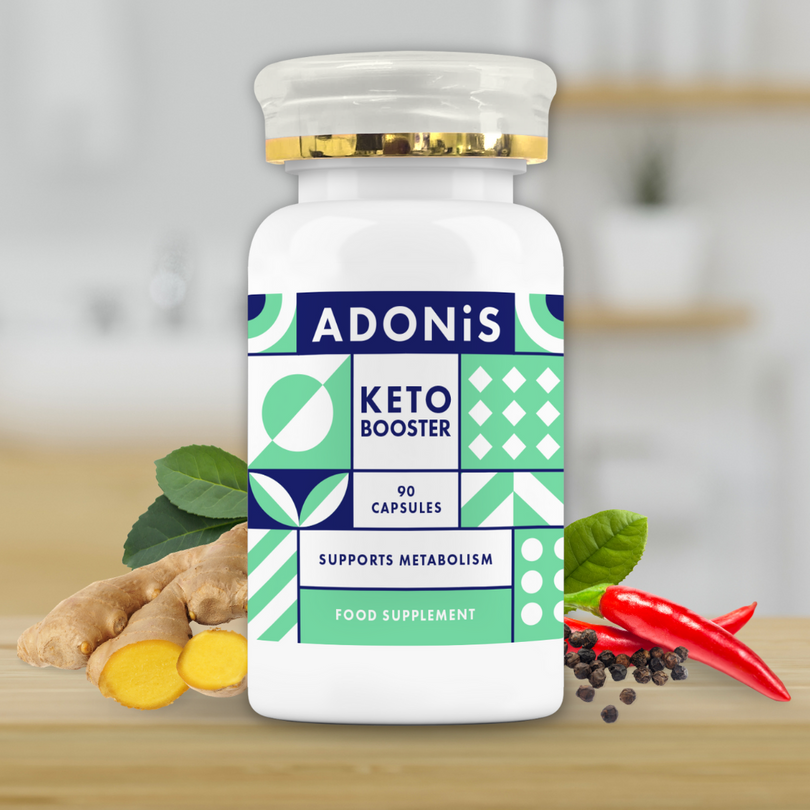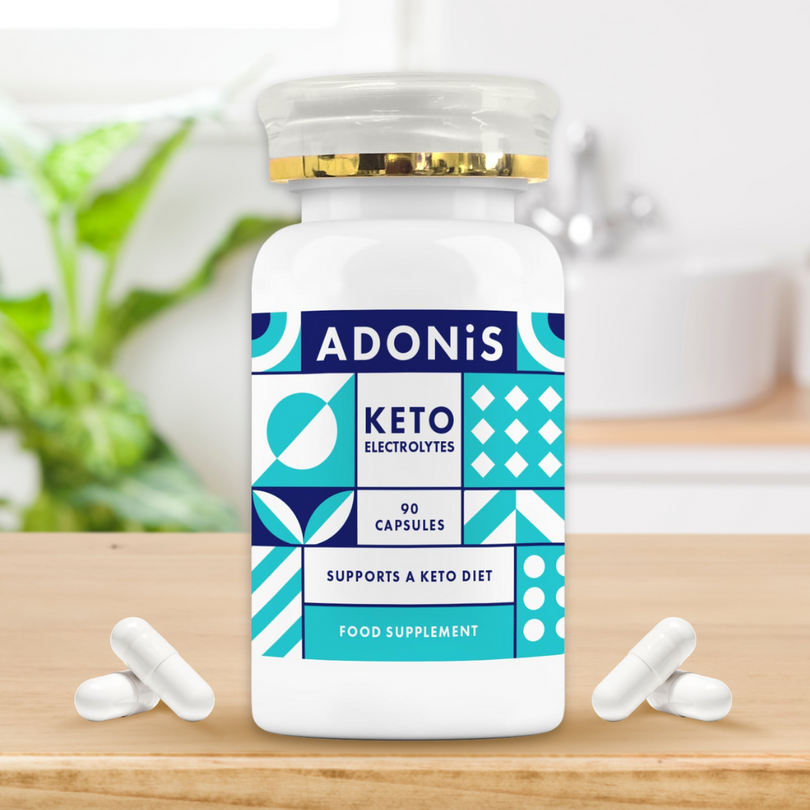KETO & COGNITIVE HEALTH
9 min
It is widely understood that following a keto diet has many health benefits. Weight loss, lower cholesterol and stabilisation of blood sugar levels have all been attributed to following this low carbohydrate, high fat and moderate protein diet. However, scientists have also found that keto is an effective way to nourish the brain to boost our cognitive, neurological and emotional health.
Here we will look at how the ketogenic diet benefits the brain and various aspects of our cognitive health.
Why is Keto Good for the Brain?
In keto, the aim is to enter a state of nutritional ketosis. Entering this ketotic state means that the body has stopped relying on dietary carbohydrates to produce glucose. Instead, fatty acid oxidation occurs in the liver to produce ketone bodies.
Ketone bodies are considered to be a super fuel, producing significantly more energy per gram than glucose. Ketone bodies therefore have potential positive effects on exercise performance, particularly in terms of endurance and recovery.

In addition, unlike other fatty acids, ketone bodies can cross the blood-brain barrier to nourish the brain. Ketone bodies provide up to 75% of the brain’s energy requirement, with the remainder of the energy coming from glucose. The remaining 25% of glucose is either newly synthesised by the liver, or broken down from within the small portions of carbohydrate eaten on keto. This biological mechanism therefore shows that following the ketogenic diet really can provide an excellent energy source for the brain.
However, following keto can do more than just feed your brain. The diet has been shown to have a positive impact on people with Parkinson’s disease, Alzheimer’s disease, migraines and other conditions affecting cognitive health.
The Depth of Keto Research
Unlike some other diets, there has been a significant amount of research into the ketogenic diet. This is because the ketogenic diet has been used extensively for over a century to treat severe epilepsy.
Epilepsy is neurological condition characterised by bursts of intense electrical activity within the brain. The changes in electrical activity lead to disruption in the brain’s usual function, which can cause seizure activity. Different types of seizures occur depending on where in the brain the change in electrical activity occurs. Seizures might involve alterations in usual sensations, reduced awareness, or stiff, jerking movements.
In the 1920s, Russel Wilder began studying the effect of the ketogenic diet in children with epilepsy. He concluded that children fed a keto diet had reduced seizure activity, making it a “therapeutic diet”.ii In 2020, Wilder’s findings were supported when a study of 158 children aged 1 to 15 followed keto for 6 months. This modern study concluded that keto led to a reduction in seizure frequency of 66%, making it an extremely helpful intervention in this group of children.
Nowadays, keto is still used to treat intractable epilepsy that has failed to respond to other medications. This has given many opportunities for in depth scientific research into the diet, with promising results for brain health.
The keto diet is believed to have an anti-seizure effect because it leads to an increase in neurotransmitters including GABA and adenosine A1. GABA is known to dampen down excitability within the brain, including electrical activity. Some people take GABA supplements to benefit from its calming properties when managing stress or anxiety. It could be hypothesised that following keto, and therefore increasing GABA, could also lead to these positive emotional effects.
Keto Diet & Memory
In 2019, it was estimated that there were over 850,000 people in the UK with dementia. Alzheimer’s disease is the most common form of dementia. It is characterised by memory loss and a decline in other cognitive functions that interfere with daily life.
Scientists have found links between Alzheimer’s and epilepsy, as both appear to affect the electric signals within the brain. There has also been promising research into keto for supporting an improvement in brain function with the keto diet.
Low carbohydrate diets that increase the availability of ketone bodies could be helpful in managing the memory loss associated with Alzheimer’s disease. In 2009, participants with Alzheimer’s took part in a research trial, taking a medium chain triglyceride (MCT) containing caprylic acid for three months. When compared to a placebo, there was a significant improvement in cognitive function scores of the participants taking MCT. This improvement was assessed using the Alzheimer’s Disease Assessment Scale (ADAS), a standardised assessment of Alzheimer’s disease.
In Alzheimer’s, the brain experiences a deficit of glucose. A study in 2018 found that taking a MCT supplement for one month doubled the percentage of ketones the brain consumed as a form of energy. MCT supplementation may therefore help to nourish the brain when glucose availability has fallen as a result of Alzheimer’s disease.
MCT oil is therefore not only an effective source of nourishment for the brain, but has shown promising results in improving cognitive function in Alzheimer’s Disease.
Brain Function & Obesity

A study of obese animals found that eating a keto diet can improve overall cognitive function. Higher levels of ketones in the blood appeared to protect the animals against obesity and protected against cognitive impairment which was associated with a typical Western diet.
Interestingly, researchers found that cognitive impairment began prior to diet-induced weight gain and obesity. This suggests that the keto diet may be of benefit to brain function, regardless of whether or not weight loss is required.
Keto & Parkinson's Disease
There are around 145,000 people living with Parkinson’s disease in the UK. This progressive neurological disease is caused by a lack of dopamine in the brain, and leads to the three main symptoms of tremor, stiffness and slow movements. It can cause significant difficulty with movements, and even loss of independence.
Scientists conducted a small study comparing the effects of a low fat diet with a high fat keto diet in 38 patients with Parkinson’s disease. The two groups were assessed using a gold-standard Parkinson’s disease assessment system.
The keto group improved their scores by 41%, compared to just 11% for the low fat diet. One of the largest areas of improvement was in cognitive function, as well as improvements in pain and a reduction in daytime sleepiness. The researchers considered it safe for people with Parkinson’s disease to maintain a keto diet in order to benefit from the improvements in cognitive function.
Keto & Migraines
A migraine is a severe headache that affects 1 in 5 women and 1 in 15 men. Some people also experience changes in their vision, an aversion to light or sound, nausea or vomiting. When a migraine occurs, it can leave the sufferer bedbound. Migraines can lead to lost days of work, creating a financial burden on society as well as putting additional strain on co-workers, relatives and friends. Migraines are known to worsen quality of life and are even associated with depression.
In the Journal of Headache and Pain, the benefits of a keto diet were compared to a traditional calorie controlled diet in over 100 patients with a history of migraine. The results were staggering.
In the calorie controlled diet group, there was no change in the number of migraines experienced. Participants in this group still required the same number of medications throughout the trial.
However, the group following a keto diet reported that their migraines were ameliorated. Participants in this group were also able to reduce the number of medications taken for migraines. The researchers concluded that adoption of a keto diet should be considered for migraine treatment. The biological method of action was unclear. However, it was hypothesized that ketone bodies prevented inflammation within the brain and enhanced brain cell metabolism.
Keto & Blood Sugar Levels
A rare condition called congenital hyperinsulinism (CHI) is known to cause low blood glucose levels in children. The condition can lead to neurological damage if the brain does not receive enough sugar to function.
When this condition cannot be managed with medications, a risky operation is offered which can have long term side-effects. One child’s parents enquired about alternative treatments, and a group of researchers suggested starting the child on a keto diet before considering surgery.

Within six months, the patient had shown a marked recovery in psychological development. Their quality of life had also improved. The keto diet therefore supported their brain function by ensuring a constant supply of ketone bodies to nourish the brain. The brain still had a good energy source even when glucose levels were low, which would previously have caused neurological damage. Whilst CHI is rare, this study has shown the value of ensuring a good supply of ketone bodies to support healthy brain function.
MCT & Brain Function
With numerous clinical trials showing that brain function can be enhanced by following a keto diet, it is encouraging to learn that supplements are available to further enhance cognitive health.
Some forms of MCT (medium chain triglyceride) oil, including Adonis C8 Vanilla MCT Oil, contain caprylic acid. This healthy fat helps to keep your body in a state of ketosis, as the liver can quickly convert MCTs to ketones. Not only does this give you a burst of energy, but it can also offer a boost of nourishment for your brain.
We have already seen the evidence suggesting that patients with Alzheimer’s disease showed improvement in their cognitive scores when taking MCT oil every day. Research has also shown that it improves cognitive function in patients without dementia, and can even help with the regulation of moods and emotions.
MCTs can be found naturally in coconut oil. However, you would have to eat a large amount of coconut oil to get the right dose of MCT, which could lead to high cholesterol. It is far easier to take an ADONiS MCT oil supplement for all of the benefits of MCT, without the high fat content.
With numerous clinical trials showing that brain function can be enhanced by following a keto diet, it is encouraging to learn that supplements are available to further enhance cognitive health.
Some forms of MCT (medium chain triglyceride) oil, including ADONiS C8 Vanilla MCT Oil, contain caprylic acid. This healthy fat helps to keep your body in a state of ketosis, as the liver can quickly convert MCTs to ketones. Not only does this give you a burst of energy, but it can also offer a boost of nourishment for your brain.
We have already seen the evidence suggesting that patients with Alzheimer’s disease showed improvement in their cognitive scores when taking MCT oil every day.
Research has also shown that it improves cognitive function in patients without dementia, and can even help with the regulation of moods and emotions.
MCTs can be found naturally in coconut oil. However, you would have to eat a large amount of coconut oil to get the right dose of MCT, which could lead to high cholesterol. It is far easier to take an Adonis MCT oil supplement for all of the benefits of MCT, without the high fat content.
Fighting Brain Fog
Brain fog is part of keto flu, a phenomenon that some keto dieters experience when first starting keto. In the first few days of keto, the body uses up stored glucose, and then flushes out the water associated with these energy stores via the kidneys. During the excretion of excess water, some electrolytes may also be lost.
Keto flu is thought to be caused by this initial electrolyte loss.
The symptoms of keto flu include flu-like symptoms, headache, fatigue, nausea and brain fog. Brain fog includes feeling disorganised, unfocused or struggling to concentrate. If you experience this on first starting keto, it may be hard to believe that continuing with keto could benefit your cognitive health. However, despite the initial symptoms, it is worth persevering with keto.
On average, the symptoms of brain fog only last for 4.5 days.
To combat or avoid keto flu, some people find it helpful to increase their intake of water, as well as adding electrolytes and other supplements to their diet.
In addition, some people find it helpful to drink a satisfyingly filling bulletproof coffee. The recipe involves two cups of coffee, MCT oil and butter. The MCT oil provides fuel for the brain, and the caffeine improves cognitive capabilities. These ingredients combined can help to combat the symptoms of keto flu so that you can push through for better cognitive health long term.
Final Thoughts
The keto diet has shown extremely promising results in cognitive health in a variety of medical conditions. Extensive trials have been carried out, showing that patients with epilepsy, migraine and Parkinson’s disease have all benefited from adopting this diet.
Ketone bodies can meet almost all of the brain’s energy requirements, and the keto diet has been shown to improve cognitive capabilities in healthy subjects, too.
Electrolytes and MCT oil are sometimes used to minimise the initial symptoms of keto flu. Supplements and food products are available to ensure the body remains in ketosis and has a continual supply of ketone bodies for optimal cognitive health.


